Getting There
In which Norm is delighted to watch Kelly Reichardt and Michelle Williams do their thing in SHOWING UP.
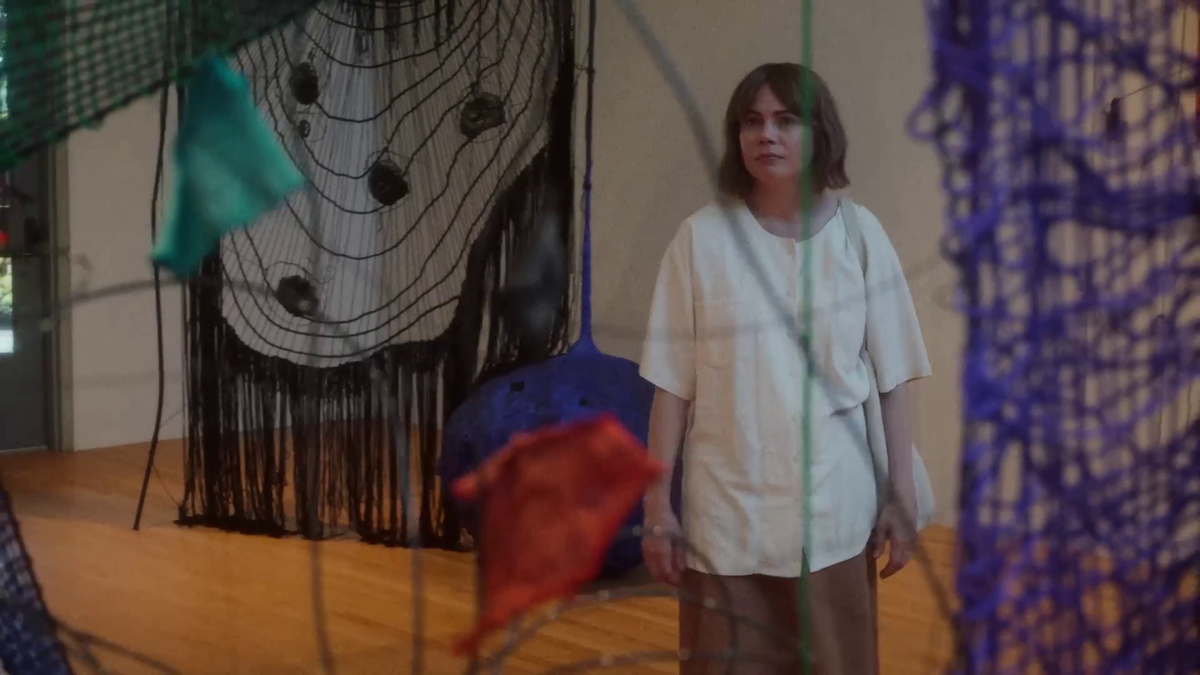
A thing I’m seeing on social media about David Fincher’s The Killer today, now that it’s freshly arrived on Netflix after a brief run in proper theaters, is that its narrative of an assassin coming to terms with the impossibility of carrying out the perfect job can also be applied to the act of filmmaking, its director’s fondness for endless takes and post-production fussery serving as the perfect analogue.
It's hardly the first film to warrant this comparison, mind you; all three of Soderbergh’s Ocean’s movies play with the same notion, and Christopher Nolan’s Inception and even Oppenheimer flirt with the same spillover of intention. But if all of those films are metaphors for the impossible pursuit of perfection, Kelly Reichardt’s Showing Up –which just arrived on disc after winding its way through the festival and art-house circuits – finds a different angle. It’s not a metaphor at all; it’s fully about making art, and how hard it is to just do the work.
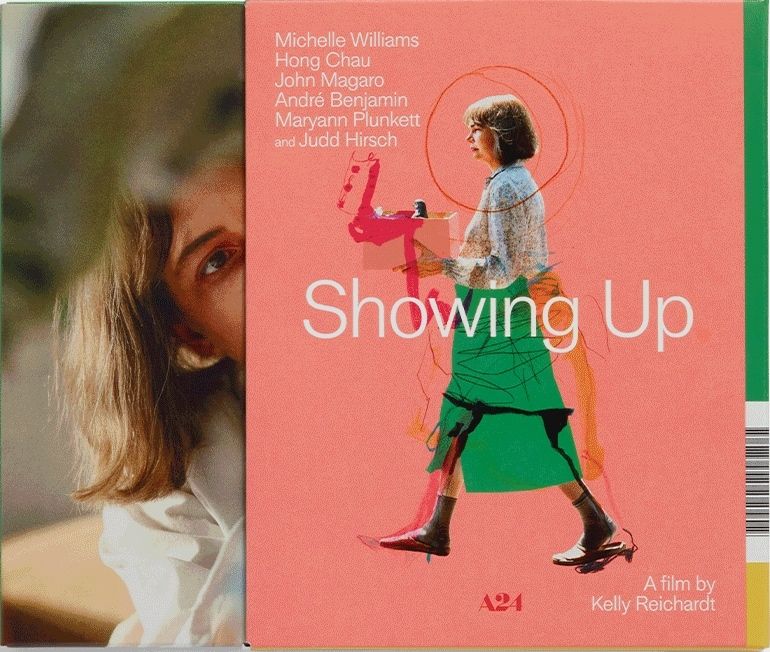
Lizzy (Michelle Williams) is a Portland sculptor a few days away from a gallery show, and she’s still working on some of her pieces. All she needs is one good day to focus and finish up, but life keeps interrupting her. Her job as an admin at the Oregon College of Art and Craft is taking up a lot of her time. Her cat just dragged a half-dead pigeon into her studio. And her landlord is dragging her ass on fixing the water heater. How do you create something lasting and beautiful when you haven’t had a shower in two weeks?
Showing Up was framed as Reichardt’s first comedy … and though it’s not exactly a movie with explosive belly laughs, in a filmography that includes the heart-wrenching Wendy and Lucy and the chilling Night Moves that’s a fair description. Certainly it’s the loosest of her collaborations with Williams, who starred in the aforementioned Wendy and Lucy and then returned for the bleak Meek’s Cutoff and the studious Certain Women. All great films, but somewhat heavy serious-minded. This one’s willing to laugh at itself.
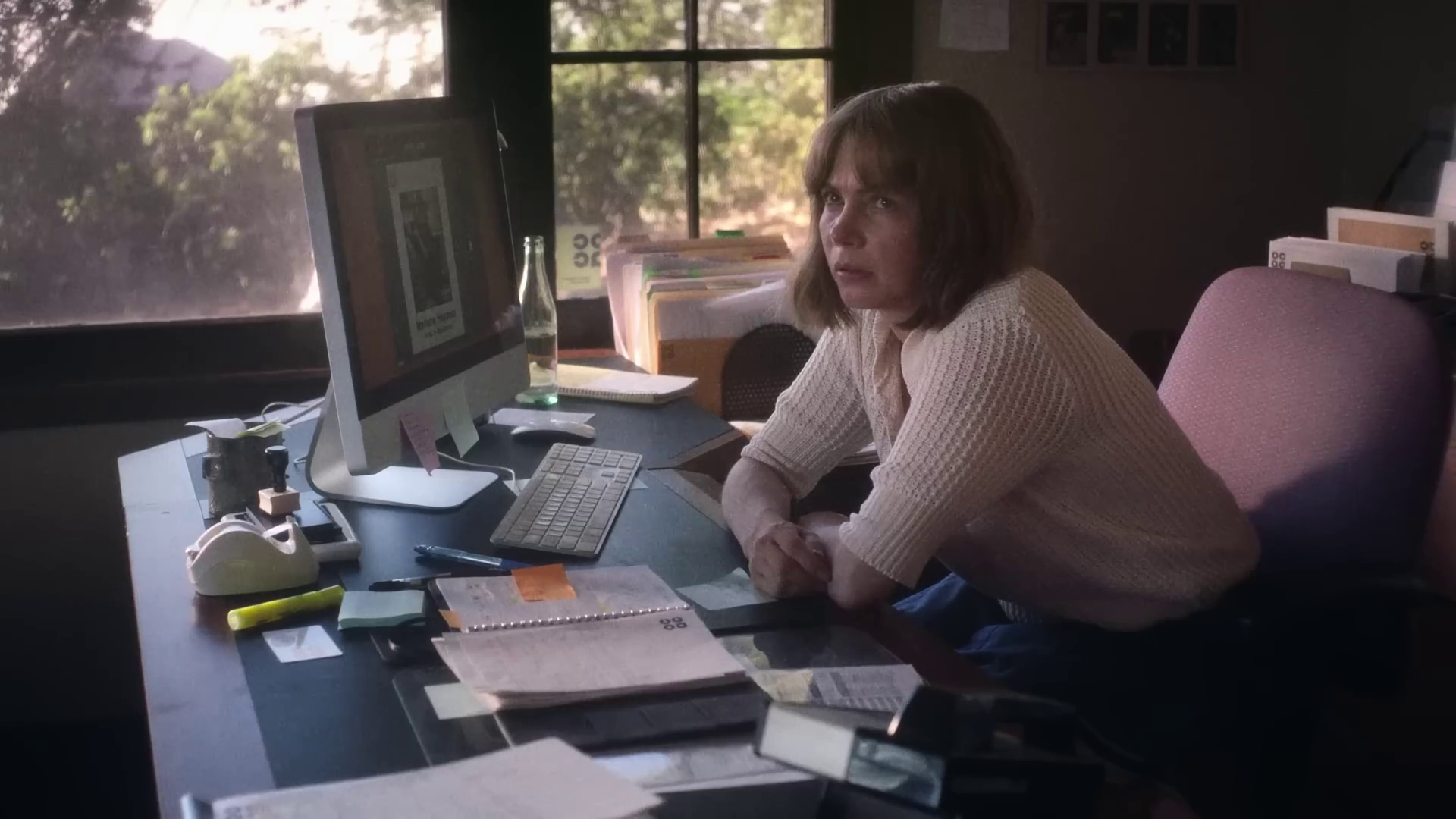
And Williams gives her beleaguered character a marvelous rigidity that is genuinely funny. When Lizzy marches from her studio to her car to run another goddamn errand, she stiffens her shoulders and pistons her arms at her sides, as if she can just pile-drive her way through whatever new obstacle has planted itself in her way. But anyone’s who raced to meet a deadline will connect to the stress that infuses her every cell, her awareness that time is passing and the work is Not Being Done. God knows I’ve been there, and I just type.
But as Showing Up follows Lizzy through her days, we get a sense of her larger world. One of her colleagues (André Benjamin) doesn’t seem to be taking her concerns about kiln time seriously. Lizzy worries about her father (Williams' Fabelmans co-star Judd Hirsch), who in his retirement has started letting weird people crash at his house. Her brother (John Magaro) is clearly struggling with mental-health issues that their mother (Maryann Plunkett) seems to be playing down. That can’t be good.
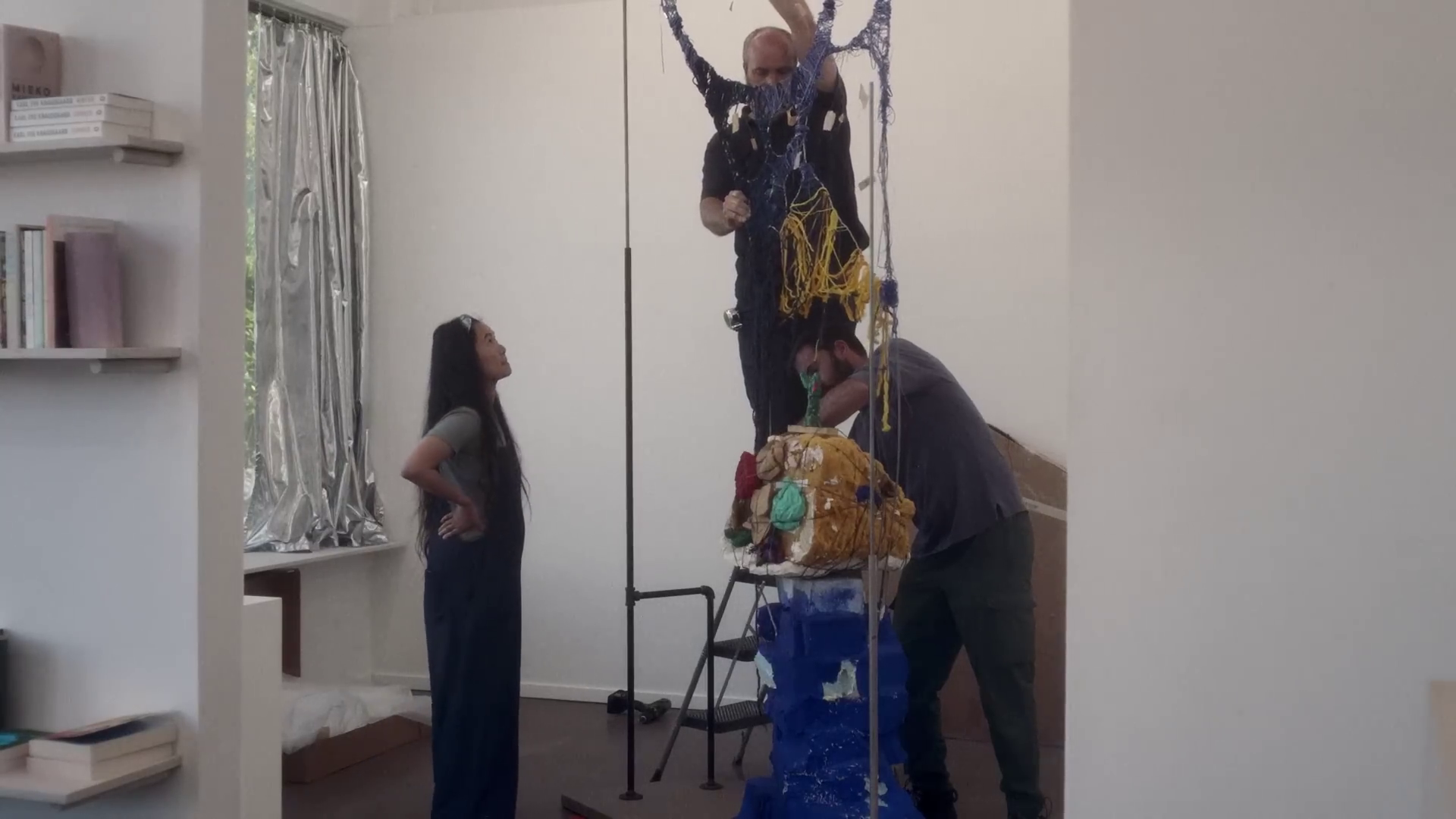
And then there’s the landlord situation. Lizzy rents a place from Jo (Hong Chau), who is also her neighbor, and an artist in her own right; when Lizzy complains the pressures of her impending show, Jo cheerfully reminds her that she’s got two of her own to deal with, and she’ll get on that water heater as soon as she’s locked those down. Is she boasting? Being passive-aggressive? Or is that exactly what Lizzy would say if their positions were reversed? Sure, Lizzy would like to think she’d be more responsible, but didn’t she just dump a mauled bird in Jo’s yard so it wouldn’t be her problem? And didn’t Jo just dump the bird back on her? What was that all about?
And so Lizzy goes to her job, drops in on her dad and her brother, takes the bird to the vet, all of it. And when she can find time to work, she works. Eventually all of these threads come together, as Reichardt and her regular collaborator Jon Raymond spin a comprehensive portrait of Lizzy in full. The title is ambiguous in the best way: Is “showing up” for her family (and that bird) the thing that lets Lizzy understand life, and reflect it in her art? Or is the specificity and delicacy in her sculptures the result of locking herself away from the world to be fully present in their creation? How can anyone who works intuitively know what their own process requires?
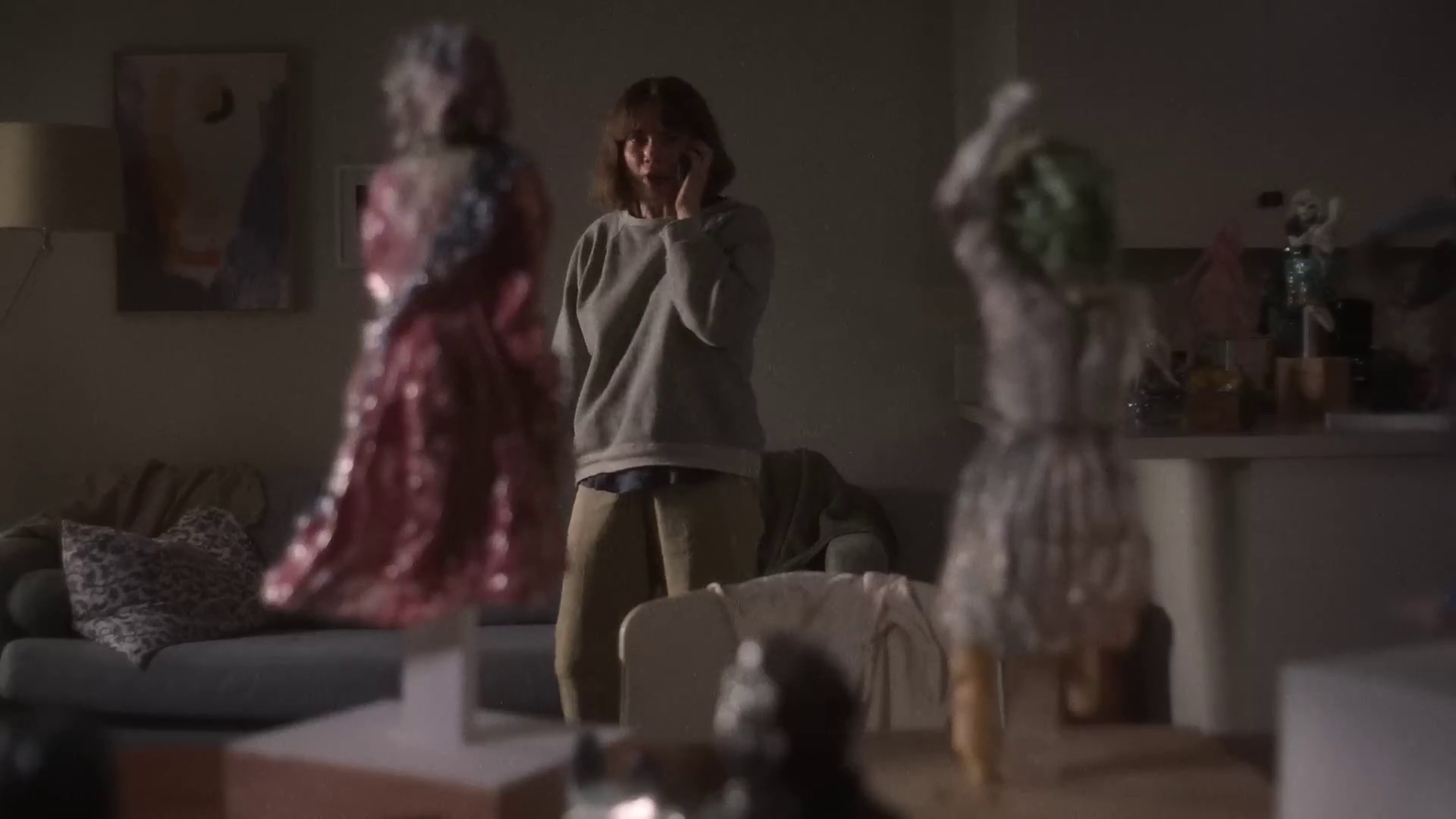
Throughout the film, I had the sense that Reichardt is wrestling with that very thing, being someone who’s moved between filmmaking and academia for most of her career. Showing Up feels very much like an artist asking herself whether it’s possible to create something significant and lasting without removing herself from the world, and finding the answer a little less clean-cut than she might have liked. I recognized everyone in it, on one level or another, and I also appreciated the way Reichardt and Raymond give even the peripheral characters moments of insight and observation, surprising Lizzy (and us) with unexpected perspectives. We see things differently, after all. That’s where art comes from.
Like Joanna Hogg’s Souvenir films and Charlotte Wells’ Aftersun – also precise, delicately observed character pieces that rank with the best current cinema, come to think of it – A24 is handling Showing Up’s physical release in-house, with a bespoke release available from the distributor’s online shop in separate 4K and Blu-ray editions. Note that both titles have “Blu-ray” in the product description, so make sure to select the format you want to order … but this is Reichardt’s first film to be released in 4K, so c’mon already! Make the leap!
A24 was kind enough to send me that 4K disc, and it’s just swell: I think this is the first time I’ve seen a Super 16 feature in UHD, and the additional resolution and wider color gamut makes the grain inherent in cinematographer Christopher Blauvelt’s images is a living, dancing thing. The atmosphere of daylit scenes is effervescent; darker moments are thicker, husky. The soundtrack is presented in Dolby Atmos, which also seems excessive until you realize the mix is designed to suggest the world as a constant presence, nudging its way into the frame. Whether it’s that pigeon quietly cooing in the back of the studio or her cat pacing outside the door, hoping to finish the job, the chatter of art students wandering around between classes or the sound of an office slowly emptying out at the end of the day, so much is happening around Lizzy, all the time. No wonder she can’t focus. (By the end of the film, Reichardt syncs us fully to her protagonist’s rhythms; the sound of someone working his way through a cheese plate is as annoying to us as it is to Lizzy.)
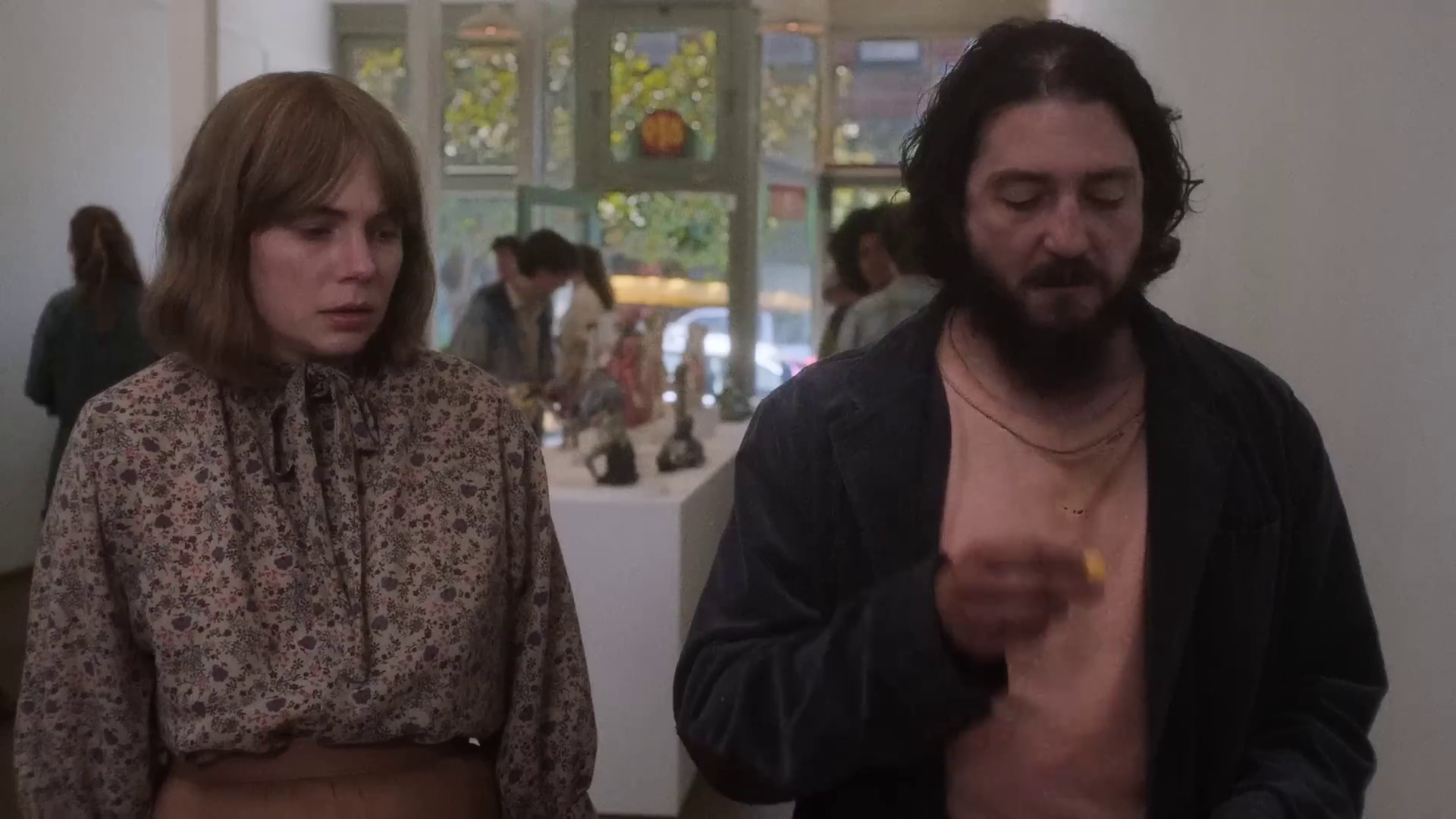
Extras are spare but very specific, just two short films of artists at work in their studios shot by Reichardt and her team in 2019 and early 2020. One follows Jessica Jackson Hutchins and Alexander Demetriou; the other focuses on the sculptor Michelle Segre, who joins Reichardt and Blauvelt for an relaxed but informative audio commentary. As with Aftersun, the package also includes some exclusive postcards; here, it’s a selection of sketches seen on the wall of Lizzy’s studio; they’re the work of Cynthia Lahti, who was Williams’ sculpture coach, and they’re very nice. I would expect nothing less, honestly.
Showing Up is available in separate 4K and Blu-ray editions directly from the A24 shop.
In Sunday’s paid edition: Fargo 4K. And some other stuff. But seriously: Fargo 4K. You want to read that, right?
